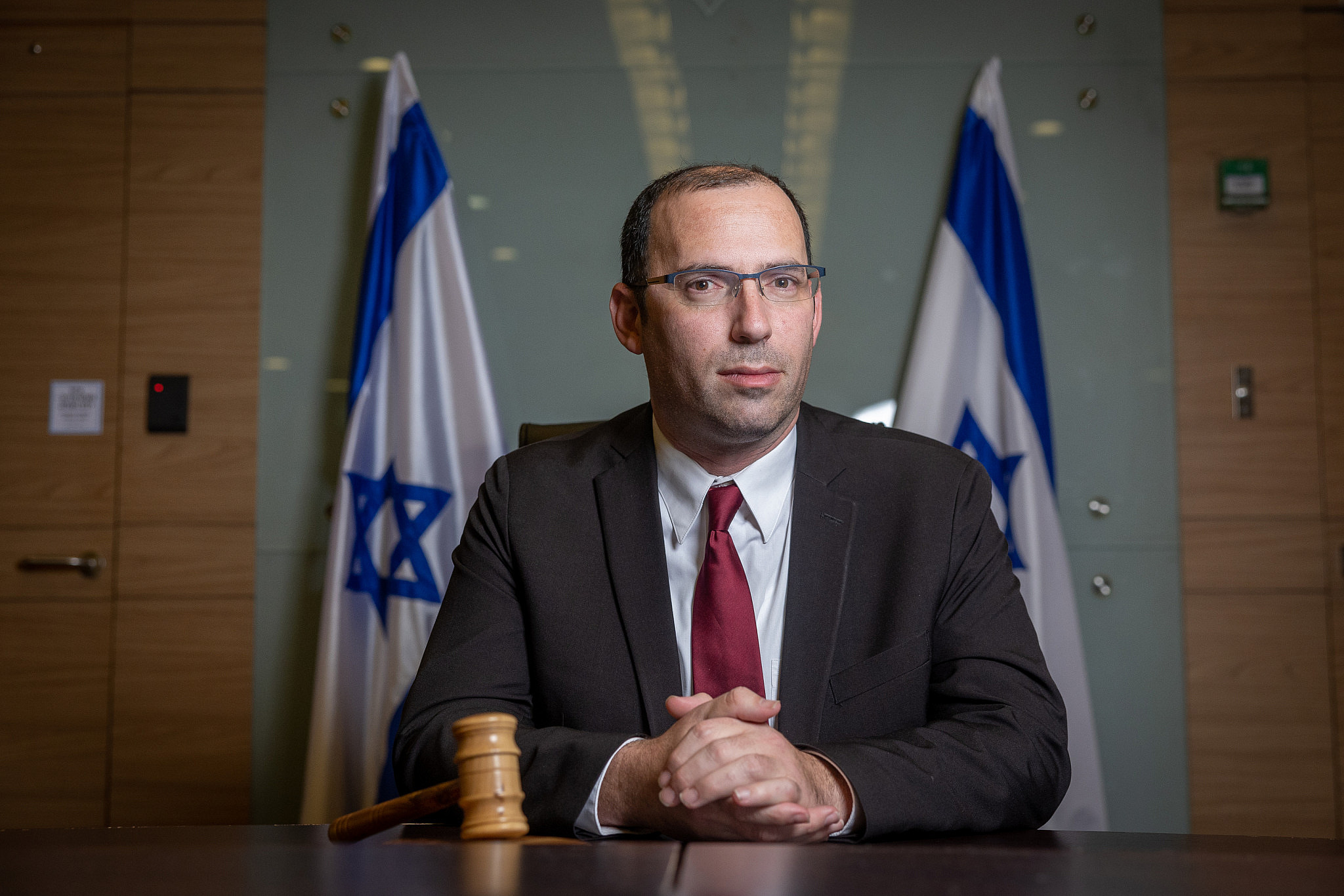Halfway through our interview, Simcha Rothman grew furious. I had asked the Knesset member for the far-right Religious Zionist Party whether his proposed judicial overhaul would negatively impact freedom of speech and of the press. In response, Rothman shouted: “By asking this question, you’re invoking incitement against the State of Israel. Just asking this question is trying to incite against me — and I’m sorry, I don’t respect, I don’t accept this line of questioning,” he continued. “Do you plan to murder me after this interview?”
For those familiar with Rothman, who chairs the Knesset’s Constitution, Law, and Justice Committee, this outburst will come as no surprise. His political star has risen as a result of his leading role in trying to advance the government’s so-called judicial “reform,” which would centralize power in the Knesset by dismantling the legal system’s current checks and balances. And Rothman has frequently lashed out at those pushing back on his arguments, whether in the Knesset halls or in media interviews.
That anger, though, hints at the lawmaker’s profound preoccupation with his vision for Israel’s courts and his disdain for their current role — an animosity that has long animated the Israeli right, which sees the courts as a perennial obstacle to its political goals.
The proposed overhaul, which the government has been pushing through in recent weeks, would remove these perceived obstacles by radically altering the function of the Israeli judiciary: it would curb the power of the attorney general; prevent government lawyers from declaring a government action illegal; allow coalition members to unilaterally appoint Supreme Court justices; and, most notoriously, amend the quasi-constitutional Basic Laws to include an “override clause,” which would grant the Knesset power to overturn Supreme Court rulings with a simple majority.
Rothman’s committee is charged with drafting and voting on the text of the reform package, before submitting it to the Knesset plenum for enactment. If he is successful in shepherding through the overhaul — variously described by experts interviewed for this article as “deeply disturbing,” a “constitutional coup,” and “fascist-adjacent” — the far right’s greatest wishes could much more easily be fulfilled: de jure annexation of the occupied West Bank, imposition of Orthodox Jewish law into every facet of the state, and formalized Jewish supremacy between the river and the sea.
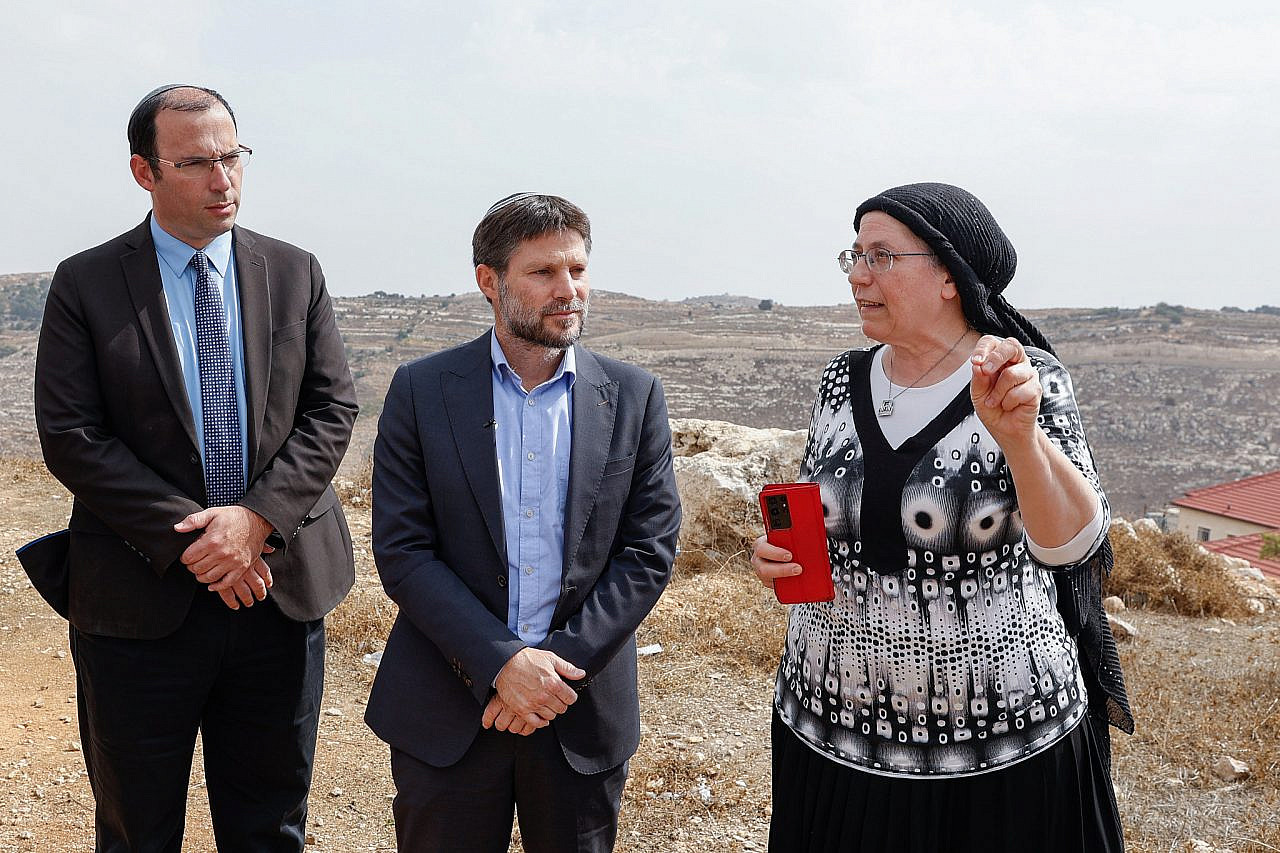
Rothman was an obvious pick to lead the committee. As a young lawyer, he helped found an organization called The Movement for Governability and Democracy, which advocated for a complete overhaul of Israel’s judicial system, later writing two books on the topic. Being tapped for that mission this past January was thus the culmination of a decade-long war Rothman has waged against the institutions regulated by the very committee he now leads.
Now tasked with bringing his once-fringe goals to fruition, Rothman has largely flown under the radar. Protesters who have flooded the streets of Israeli cities in recent weeks in opposition to the “reform” can frequently be spotted with signs targeting Justice Minister Yariv Levin — Netanyahu’s right-hand man and Rothman’s ally in advocating for the overhaul — but rarely, if ever, does anyone hold a sign criticizing Rothman.
That seems poised to change. Rothman, who has more direct control over the proposed legislation than any other politician, embodies the fury motivating the Israeli right’s agenda, which he unleashes at anyone he perceives to be standing in his path: journalists, a former attorney general, and above all the Israeli Supreme Court. The judicial overhaul will help weaken each of these foes. But the legislation that Rothman is currently pushing through — as he explained to +972 — is only the beginning.
The root of all evil
The idea that the Supreme Court represents an internal enemy is hardly Rothman’s own creation. Ami Pedahzur, a political scientist at the University of Texas who studies the Israeli far right, told +972 that the religious right “has always considered the Supreme Court an abomination.” He points out that the extremist American-Israeli rabbi and Kach party founder, Meir Kahane, “wrote extensively about the tension between Judaism and democracy and the need for the Sanhedrin [the biblical system of judges] instead of the judicial system.” In Israel’s attempt to balance its two identities, the far right sees the judiciary as leaning too far toward democracy.
In Rothman’s telling, this tension became unbearable in 1995. In November of that year, just four days after Prime Minister Yitzhak Rabin was assassinated by a far-right Jewish extremist (a law student, no less), the Supreme Court handed down its decision in a case called United Mizrahi Bank vs Migdal Cooperative Village. The ruling, authored by then-Chief Justice Aharon Barak, declared for the first time that the Court had the power of judicial review over Knesset legislation and would start canceling laws deemed to be in conflict with Israel’s quasi-constitutional Basic Laws, internationally recognized human rights, or legal values such as “reasonableness.”
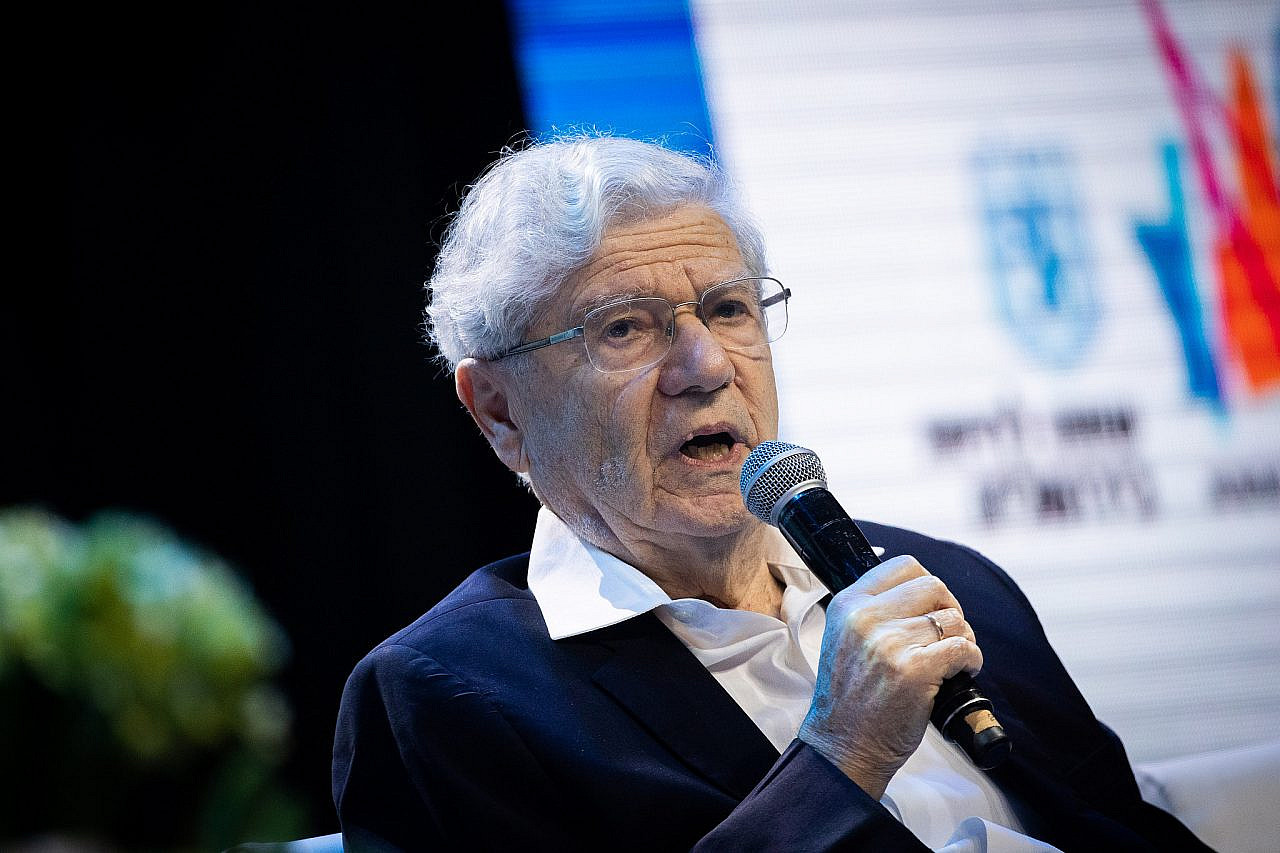
The Israeli right, including Rothman, saw this ruling as a coup, one that single-handedly ushered in the judiciary’s undemocratic domination of Israeli law and politics. To their mind, they were now in a war against unelected liberal naysayers lacking the legitimacy to cancel laws passed by the democratically elected Knesset. In an interview last year, Rothman referred to Nov. 9 — the date the Bank HaMizrahi ruling was handed down in 1995 — as a yahrzeit marking the death of Israeli democracy, using the Yiddish term for the annual day of mourning for deceased loved ones.
But this account of the Court’s usurpation of power is false. As Dahlia Scheindlin, a scholar who has studied Israel’s judicial system and a longtime contributor to +972, points out, the Supreme Court practiced judicial review long before 1995. The Knesset even passed a pair of Basic Laws — Human Dignity and Liberty in 1992, and Freedom of Occupation [employment] in 1994 — that it knew the Supreme Court would use to practice judicial review. What changed with Bank HaMizrahi, she says, is merely that this practice became explicit. “Aharon Barak wrote it down in black and white,” Scheindlin explained.
Moreover, the Israeli far right’s hatred of the Supreme Court predates that 1995 ruling. In 1979, the Court ruled that the Elon Moreh settlement — built on Palestinian land seized soon after Israel occupied the West Bank, and which then-Prime Minister Menachem Begin had promised would serve as a model for further settlements — had to be evacuated. It was one of the first and only times the Israeli government was forced to stand in the way of the settler movement, and because it was the judicial branch that demanded Elon Moreh’s removal, settlers started to view the Court as innately hostile to their project.
As a result, even though the Supreme Court has since almost always sided with the Israeli government and Jewish settlers in cases relating to the occupation, the far right tends to focus on the few cases in which the Court has ruled against them, crafting a narrative in which they are the victims of an excessively powerful liberal institution. This narrative is key to the right’s political agenda: “It serves them very well to blame everything on Aharon Barak, to vilify him,” Scheindlin said, “because then the current powers held by the Court are just the result of Barak’s bizarre ego trip.”
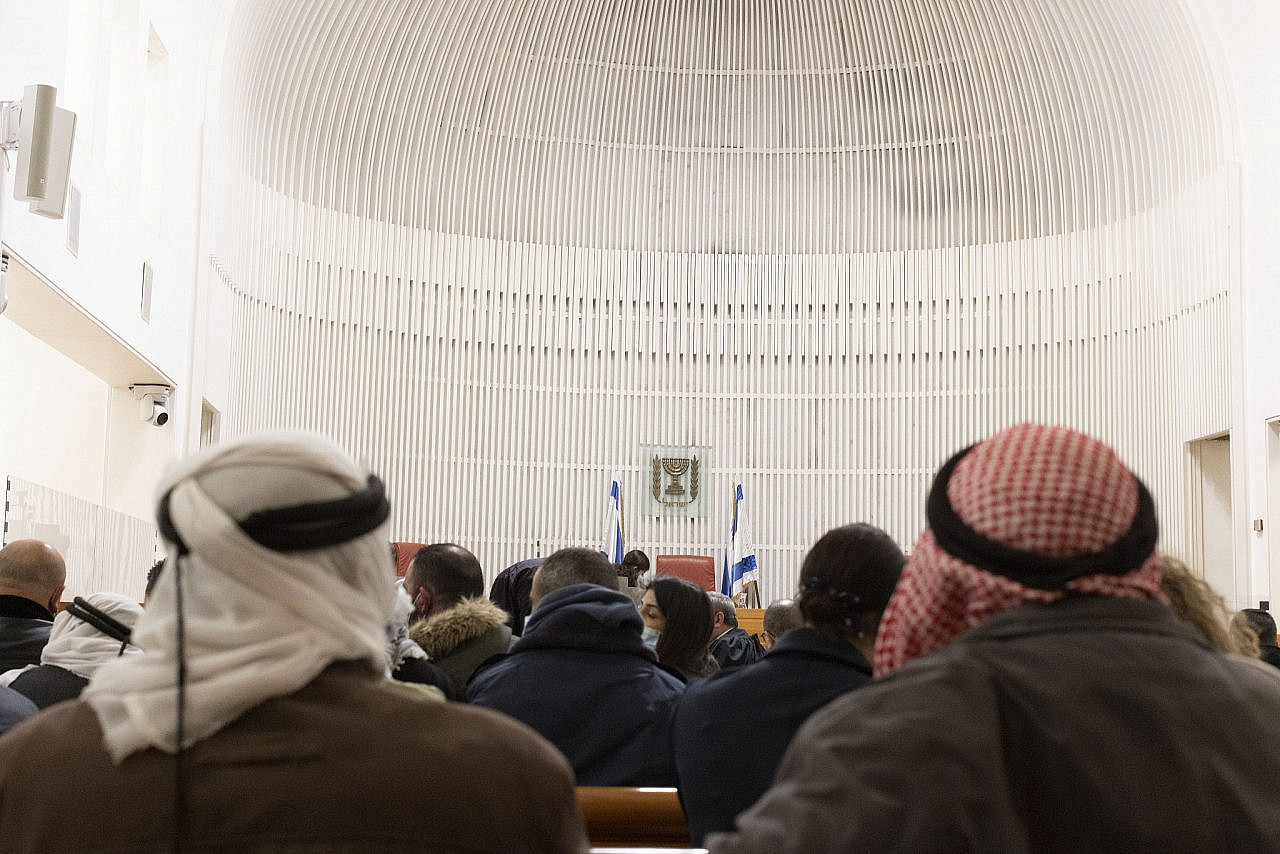
This narrative was on full display during the Israeli election campaign last fall, with Rothman leading the charge. In a highly staged campaign ad, a supposedly naive friend asks Rothman to explain his obsession with the judicial system, telling him that “there are so many other important issues.” Rothman replies, “Every topic, every issue is connected to the judicial system,” before explaining how the major ills of Israeli society can all be blamed on the Court.
The high cost of living, he says in the ad, is the result of the Court not allowing the government to build housing units on Palestinian land in the West Bank, so demand for housing within the Green Line has risen while the housing supply stays flat. South Tel Aviv has been “overwhelmed by illegal infiltrators” — referring to African asylum seekers — because judges have prevented the government from deporting them. The Court has also allowed “those calling for a boycott of the state” to win the Israel Prize, blocked the government from passing a blanket ban on serving hametz [leavened food products like bread] in hospitals on Passover, and permitted people who converted to Judaism through the Reform or Conservative process to immigrate to Israel under the Law of Return. In short, the Court has wrought catastrophe on the right’s vision of what the state should stand for.
Existential fear
Rothman is a natural heir to the right’s war on the Israeli judicial system. He was born to a national-religious family living in a small enclave of similar-minded families in Bnei Brak, a predominantly Haredi city outside Tel Aviv. The Rothmans and their cohort coexisted peacefully with their more religious neighbors, constructing, in Rothman’s words, a sort of “ultra-Orthodox-national-religious demilitarized zone.” His elementary and middle schools were Haredi, and this too became an advantage: “I got to know the ultra-Orthodox community. I speak the language.”
Like most national-religious Israelis, the Rothmans — whose ancestors immigrated to Palestine in 1910 — were politically conservative. In the 1988 election, when Simcha was eight years old, both of his parents and all three of his older siblings voted for different political parties. “There are quite different views [in the family],” he told an interviewer in 2020, “but there was no left, of course. Naturally.” By the time of that election, Rothman was fully obsessed with politics, knowing the names of every MK and government minister; he claims to have started reading the newspaper at the age of four.
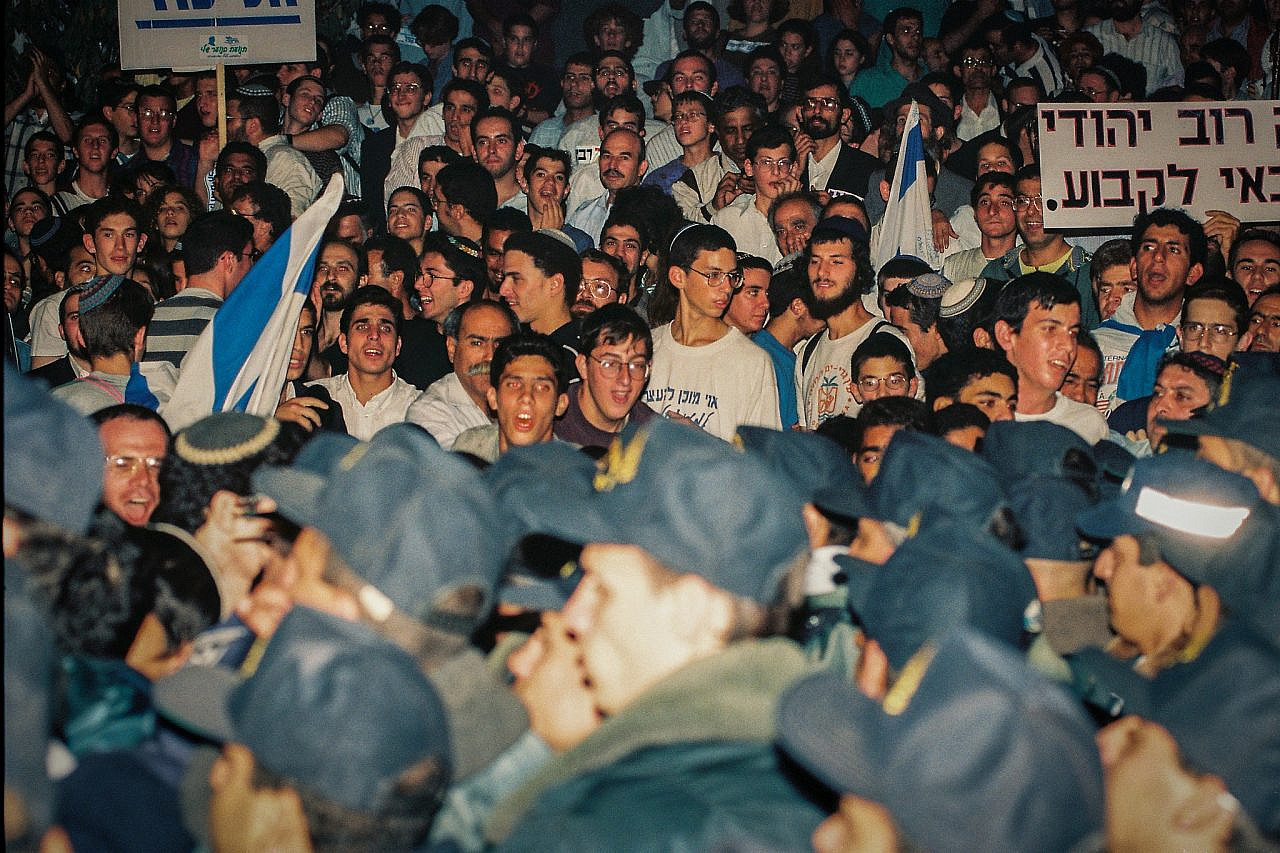
Rothman came of political age at a time of both immense tumult and rapid growth for the Israeli far right. In 1993, Prime Minister Yitzhak Rabin and Palestine Liberation Organization head Yasser Arafat signed the Oslo Accords; though the agreements left many key issues to be hashed out in final-status negotiations that never came to pass, they represented the first serious attempt to grant Palestinians an independent political entity in the West Bank and Gaza since Israel had occupied the territories in 1967.
The Israeli right, which regards the entirety of the Land of Israel as its birthright, saw Oslo as an utter catastrophe. Settlers in the West Bank and Gaza felt the threat acutely: were Palestinians to achieve full statehood, the Jews who had settled in those territories would either be evacuated or subsumed into an Arab-majority state. Still, despite the negotiation process, the Israeli government continued to approve the construction of thousands of new settlement units.
At the same time, the Palestinian Islamist movement Hamas and other armed groups began carrying out a series of suicide bombings, most of them on public buses across Israel and the occupied territories. On Feb. 25, 1996, a Hamas operative blew up the No. 18 bus, which departs from the Jerusalem Central Bus station, killing 26 people; a week later, there was another bombing on the same bus line, killing a further 19.
These twin bombings were personal for Rothman: he regularly took the No. 18 to get to his yeshiva in Gush Etzion, the largest settlement bloc in the West Bank, where he was studying at the time. The right-wing backlash to the Oslo Accords, combined with the threat of the bombings, helped transform what had been a childhood obsession with politics into a deeply personal project. He told an interviewer: “You don’t have the luxury of not being involved in politics when politics is bombing the bus you’re riding to school.”
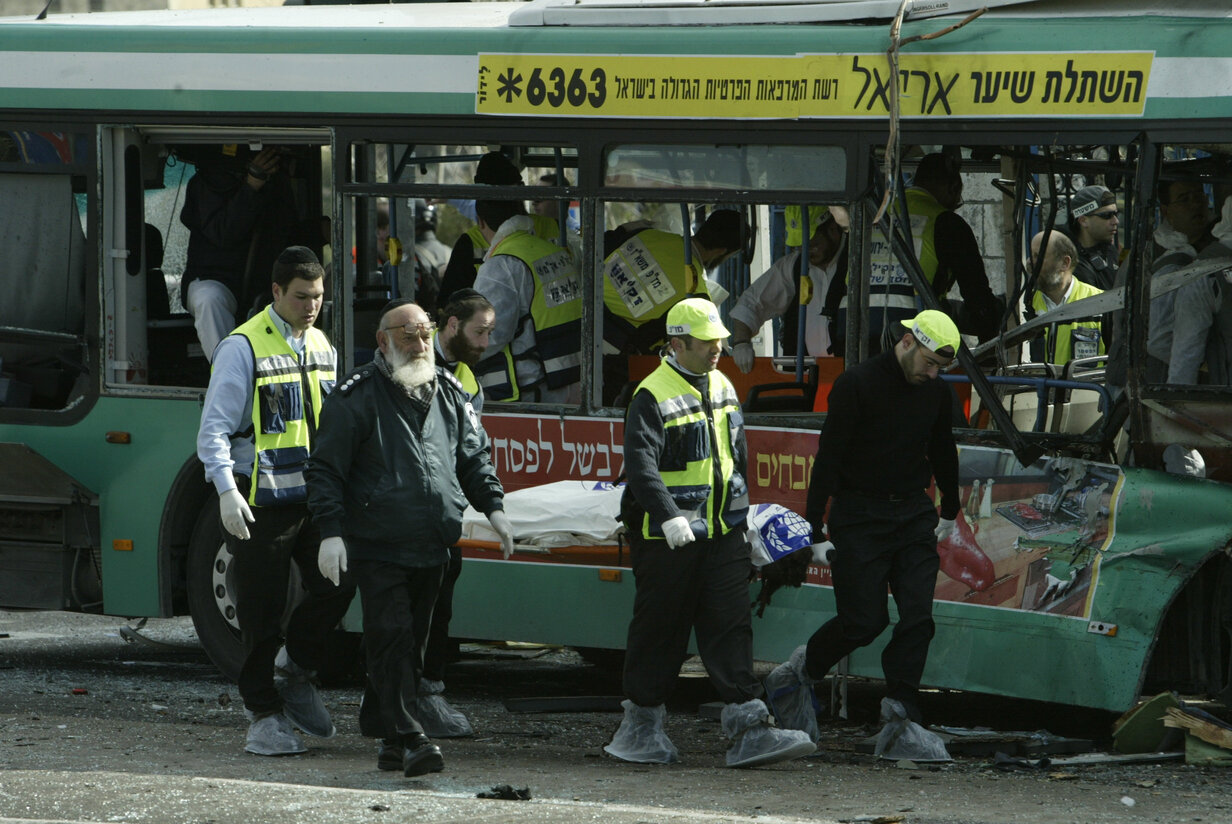
Just under a decade later, the settler right’s worst fears were realized when the Israeli government, under Prime Minister Ariel Sharon, unilaterally withdrew its settlements from the Gaza Strip. A group of settlers living in Gush Katif, the largest settlement bloc in Gaza, petitioned the Supreme Court to cancel the Knesset law ordering the evacuation, but the court declined to intervene, and the army evacuated the settlers — an outcome that, for the right, overshadowed even the Court’s 1979 Elon Moreh ruling.
Rothman joined the massive protests that broke out among right-wing Israelis leading up to the disengagement. Years later, in his first speech on the Knesset floor, he channeled the emotions from that period, tearing up while expressing anger at the Court’s failure to stop the evacuations. “We can and must talk about the role the judicial system played in those dark days of the democratic State of Israel,” he said. “This injustice awaits justice. It’s still waiting.”
The fear of further evacuations hangs heavily over the settler right, and Rothman is no exception: he and his family live in Pnei Kedem, a settler outpost of Gush Etzion which, for now, remains illegal even under Israeli law (although it has received state services for two decades). And according to Pedahzur, the political scientist, this cloud of fear has profoundly shaped the movement’s political outlook.
“The settlers and the religious-Zionist institutions consider themselves to be under attack,” says Pedahzur, “even more so because they see settlement in the Land of Israel as a religious decree.” The state’s supposedly liberal institutions — above all, the Supreme Court — that impede this divine right threatens, to their mind, every facet of their lives.
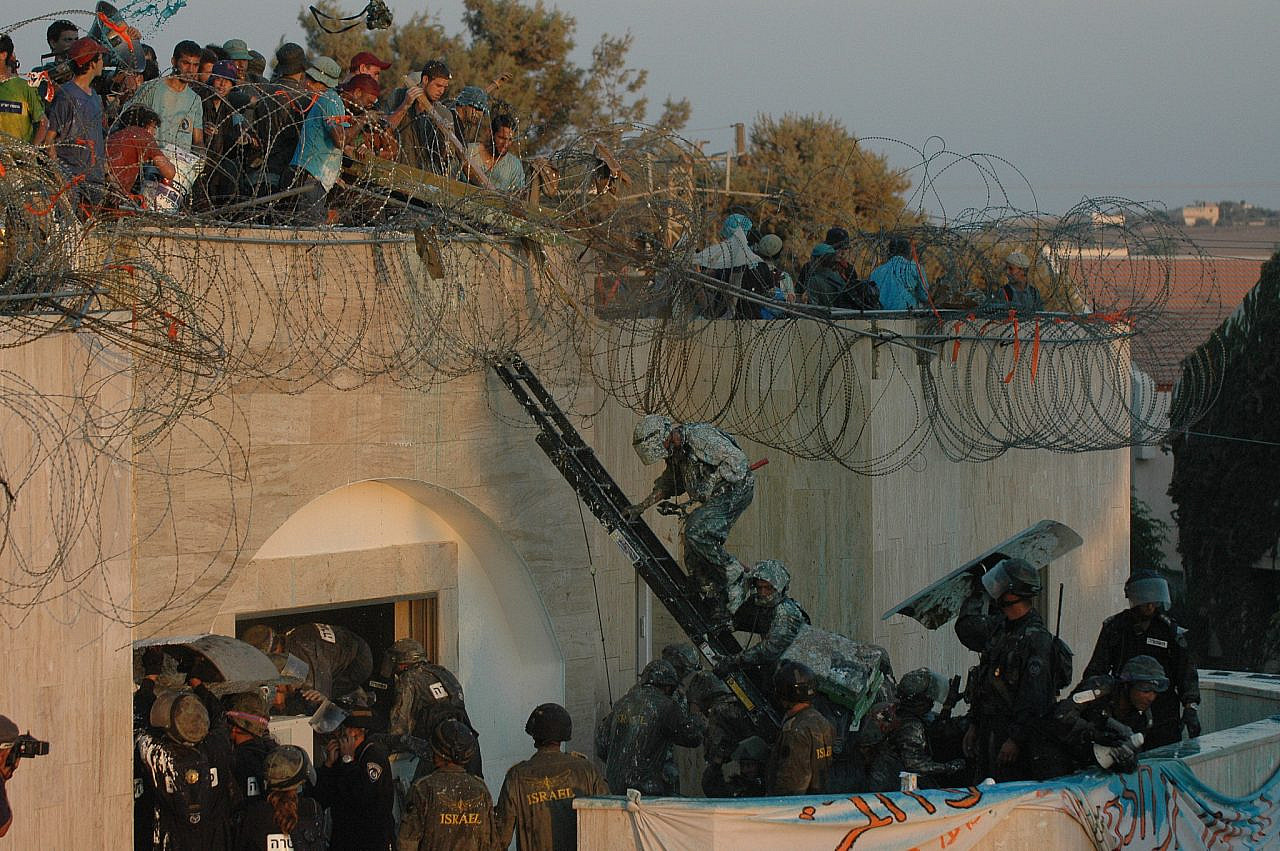
“We can tell them that the Courts have given them much more than any democracy would have, but it doesn’t matter what we think,” Pedahzur continued. “After seeing [the disengagement from] Gaza, they feel existential fear, and recognizing this fear is key to understanding what motivates them.”
Rage against the Court
Rothman’s anger at the perceived hostility of the Supreme Court, and at political obstacles in general, is often palpable. A Haaretz panel he appeared on last October descended into a shouting match at his instigation; the Knesset meetings he chairs routinely witness a similar deterioration. He so dominates the sessions that critics have charged him with running his committee anti-democratically — the very charge they also level against his judicial overhaul plan.
That rage seems to be deeply rooted. A classmate from elementary school described Rothman to Haaretz as “a problematic child who was involved in fights,” but also as a “mad genius who excelled in his studies.” At Northwestern University, where Rothman completed a graduate law degree, he was one of the “best students in the class,” according to his program director, Arye Edrei. But his “pleasant, friendly, and charming” demeanor would shift suddenly if the Supreme Court came up. “It was clear that the subject preoccupied him,” Edrei told me. “He had a lot of anger, took it personally.”
I sensed that similar flaring temper when I spoke with Rothman, and the line between intellectual ferocity and personal fury was hard to discern. During the phone interview, I asked him: if there were no judicial system to halt a Knesset bent on bolstering Israel’s security at any cost, how could freedom of speech or the press be protected?
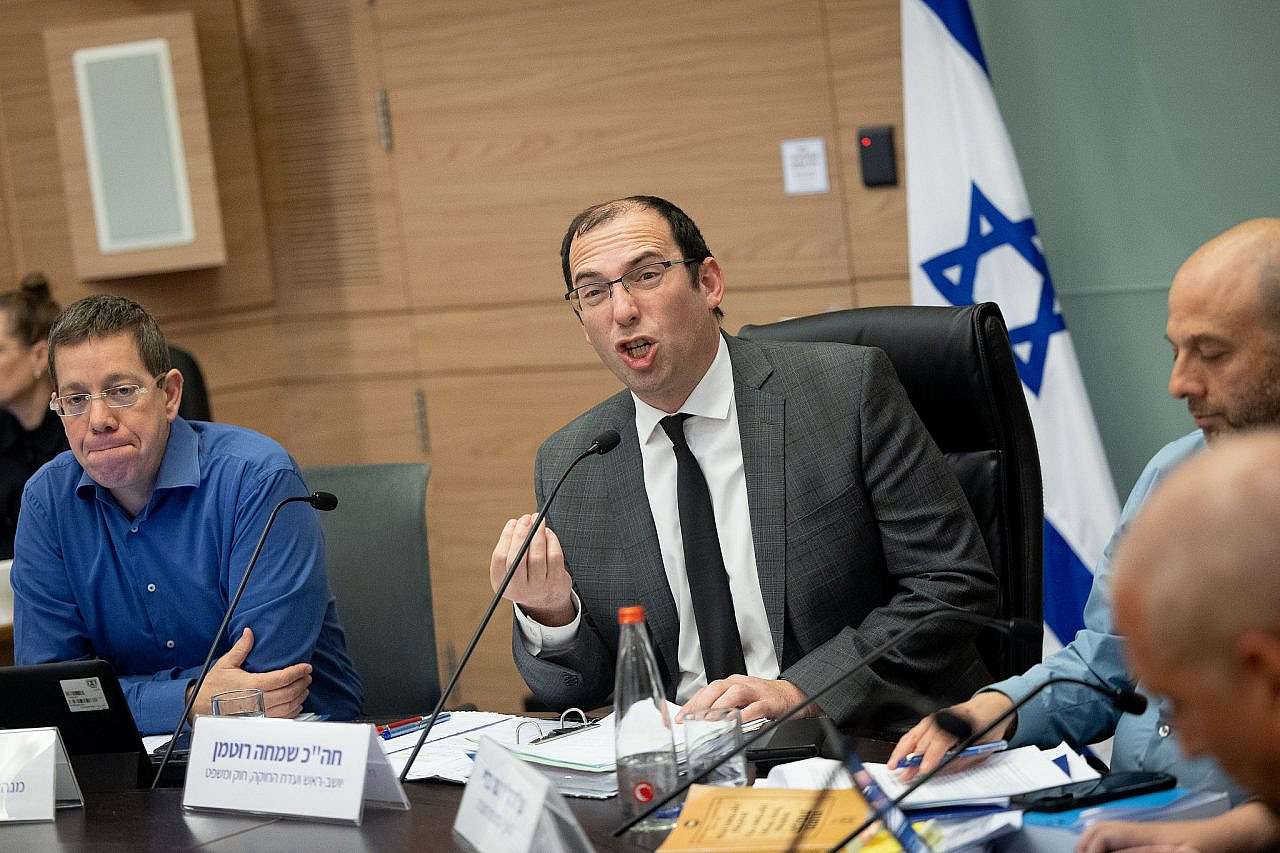
Rothman replied that these would of course be protected once the reform is passed, though he did not specify how. Then suddenly his demeanor took another turn, his frustration transforming into hostility. His voice rose in volume, claiming that merely asking the question was “inciting” against him, before asking if I was planning to murder him after our interview.
“Definitely not,” I answered.
He yelled on: “OK, if not murder, are you going to take away all my money? Or [throw] me in the street? Or curse me? What kind of questions are you asking me? I’m really protesting this line of questioning. I’m even shocked that you asked, I have to say.”
My attempt to clarify my question did not seem to defuse Rothman. “There are no checks and balances in that way [under my plan],” he replied. But this, for him, is not a problem, and raising concerns about it is “discriminating against countries based on if it’s the Jewish country or not, [and] it’s a slippery slope that leads to other acts of antisemitism,” Rothman said.
“The British parliament is an almighty parliament,” he continued. “The court in Britain cannot cancel rules and legislation by the parliament. There are no checks and balances in that matter in Great Britain, or in New Zealand. Would you ever interview someone from Great Britain or New Zealand and ask him, is he planning to murder someone or to kill someone because he writes something against Great Britain? Would you ever ask this kind of question?” (This was not the question I had asked.)
“The answer is — you don’t have to answer — the answer is no. You wouldn’t even ask this question. By asking this question, you’re invoking incitement against the State of Israel,” Rothman declared. He seemed to immediately realize the irony of accusing a journalist of incitement for asking a question about the protections afforded to journalists: “Of course, to be sure, I’m not going to do anything to you for asking this question and inciting against the State of Israel,” he clarified. “But the question is inciteful.”
Unequal justice
The right-wing coalition and the anti-government protesters agree on one thing: the fate of Israeli democracy depends on the fate of the judicial reform. For the opposition (both inside and outside Israel), the reform represents the plunge of Israeli democracy into full-fledged fascism. For Rothman and the right, it will simply wind the clock back to the era before Israel’s misguided “constitutional revolution.”
Both of these views assume the existence of a golden age of Israeli democracy: either the time before 1995, or the years since. What the opposition tends to omit from its depiction of the Supreme Court as the last bastion of democracy, however, is that the Israeli legal system and the Court itself have always distinguished and discriminated between Jews and non-Jews — including those who are citizens.
For example, the Court has consistently approved Knesset legislation aimed at ensuring the state’s Jewish majority and certain exclusive privileges for Jews — laws that blatantly favor one ethnic group over another. Whereas any Jew can immigrate to Israel and gain immediate citizenship under the Law of Return, Palestinians in the West Bank and Gaza cannot receive the same even if they marry an Israeli citizen. In a notorious 2012 ruling, the Supreme Court upheld for the second time a law banning Palestinian family unification in Israel, with then Chief Justice Asher Grunis writing: “Human rights are not a prescription for national suicide.” A decade later, the Court also upheld the Jewish Nation-State Law (Israel’s most recently enacted Basic Law), effectively codifying Jewish supremacy as a constitutional anchor.
That the Court sides with the Knesset in the vast majority of such cases is no coincidence. According to Sawsan Zaher, a human rights lawyer who was formerly the deputy director of the legal center Adalah, the Supreme Court only sides with Palestinian citizens of Israel in what she calls “soft cases,” such as in the field of socio-economic rights. But when a case “threatens the demographic balance of Israel,” she explained, “or if the case is about land or security, the Supreme Court does not get involved” to defend Palestinian citizens.
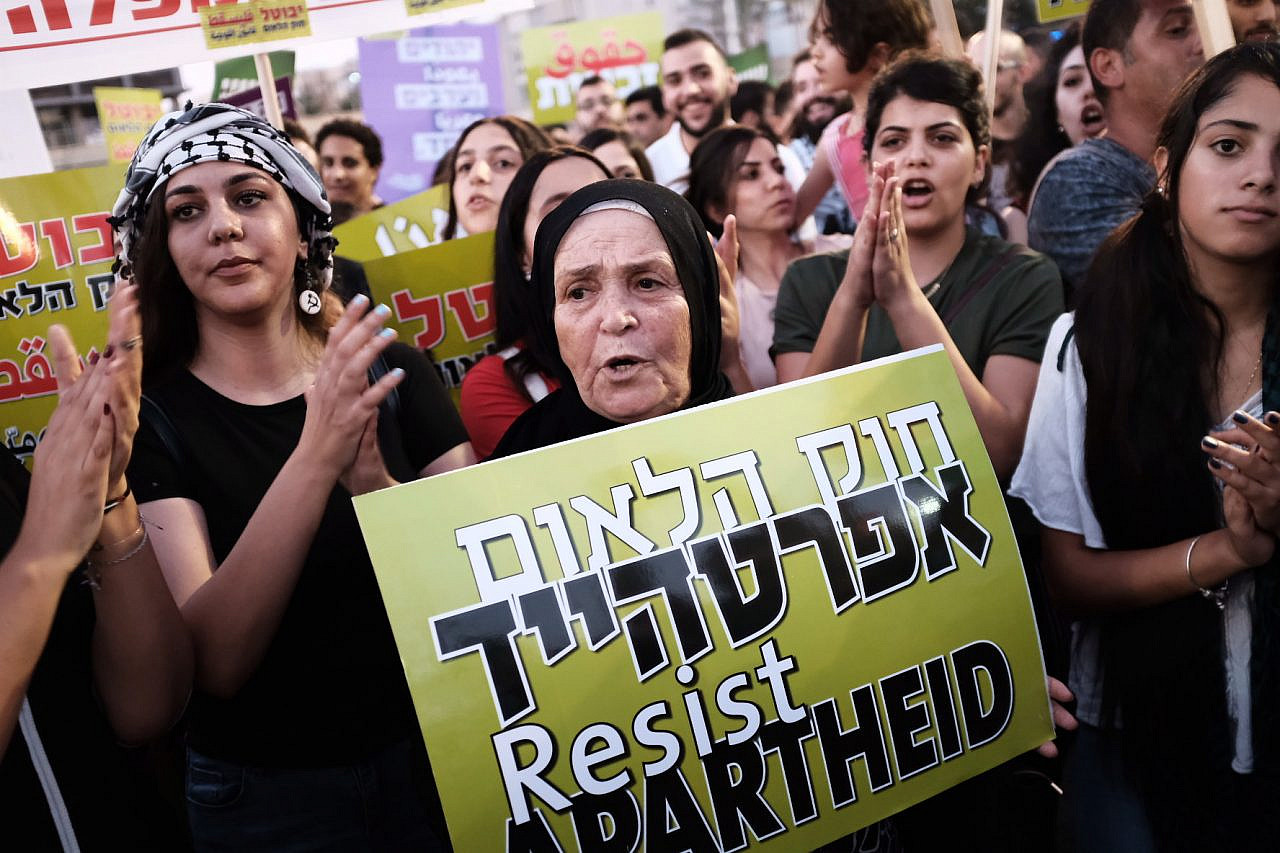
The systemic inequality of the legal system is even starker in the occupied territories: Jews who commit a crime in the occupied territories are tried in Israeli civil courts within the Green Line, while Palestinians who commit the exact same crime in the same location are tried in military courts. As Zaher emphasized: “One regime with two legal systems [based on ethnicity] is a clear component of apartheid.”
Critics warn that Rothman’s plan would entrench this systematic separation by erasing the distinctions between Palestinian citizens of Israel and those living under occupation. Part of this plan includes de jure annexation of the West Bank, long the greatest ambition of the settler right. But concomitant with the extension of Israeli sovereignty is expanding the stark legal separation into Israel’s pre-1967 borders.
In our conversation, Rothman outlined his vision for this legal regime. In brief, he wants to divide the system in two.
The main legal system would be roughly the same as the current one, and would deal with crimes spanning from burglary to murder. “The criminal law system is based on the assumption that it is the end of the line,” Rothman explained, “meaning if the education system failed, and the social welfare system failed, and the probation system failed, and peer pressure from the public failed, and the person commits a crime — a bank robbery or a murder or a rape — then the criminal justice system comes in and tries to fix them and return them to society as a functioning member.”
Parallel to this “normal” criminal justice system would be the system for those deemed “terrorists,” reserved for crimes committed by people “you cannot make better,” as Rothman put it, and by someone acting “on behalf of a collective.” For Rothman, the regular criminal justice system is simply unsuited to punishing such crimes: “I think a terrorist is not a criminal — a terrorist is a terrorist, something else totally,” he said.
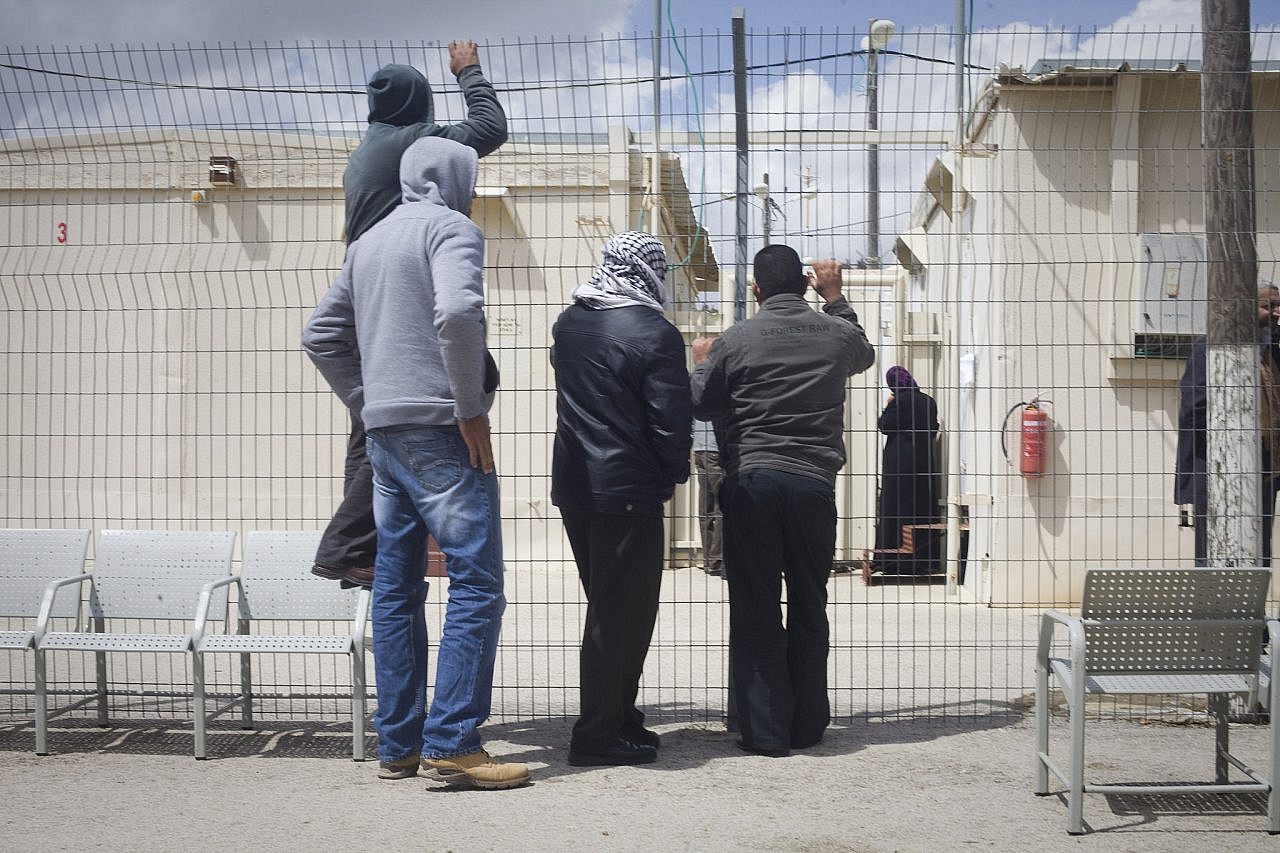
Rothman made it clear that the “terrorist” label would not apply to Jews. “People who are being, I think, falsely accused of Jewish terror … should be tried as a criminal because that’s what they are,” he insisted. “If you go on the street and you see an Arab and you hit him just because he’s Arab, then you are a criminal [and not a terrorist], because in Israel you are not acting on behalf of the collective, and you are not acting against a collective.”
To try and clarify what he meant, I asked a hypothetical question about an attack in a synagogue versus one in a mosque. Rothman cut me off: “It is not the same crime. In the U.S., it would be the same crime. In the U.S., a person goes to a mosque and a person goes to a synagogue and tries to kill innocent people, they’re both a hate crime, and it’s to be taken care of in the same way.
“In Israel,” he continued, “if you go to a synagogue and murder people you are a hero [he means to Palestinians]; and if you go to a mosque and commit a crime then you are a villain [he means to Israelis], no one will support you, and you are a terrible person and you will never get a prize for what you have done. I think that’s the big difference.”
The sovereign majority
Distinguishing identical crimes based on the ethnicity of its perpetrator is antithetical to what most people would consider a democracy. But for Rothman, a justice system that treats people unequally is irrelevant to this question. For him, a proper democracy is not a state with liberal institutions tasked with protecting the rights of individuals, but one in which the government is empowered to act on behalf of the majority however it sees fit, unencumbered by institutions like a Supreme Court. The will of the majority (albeit one that is artificially engineered to ensure that it is Jewish) should reign unchecked.
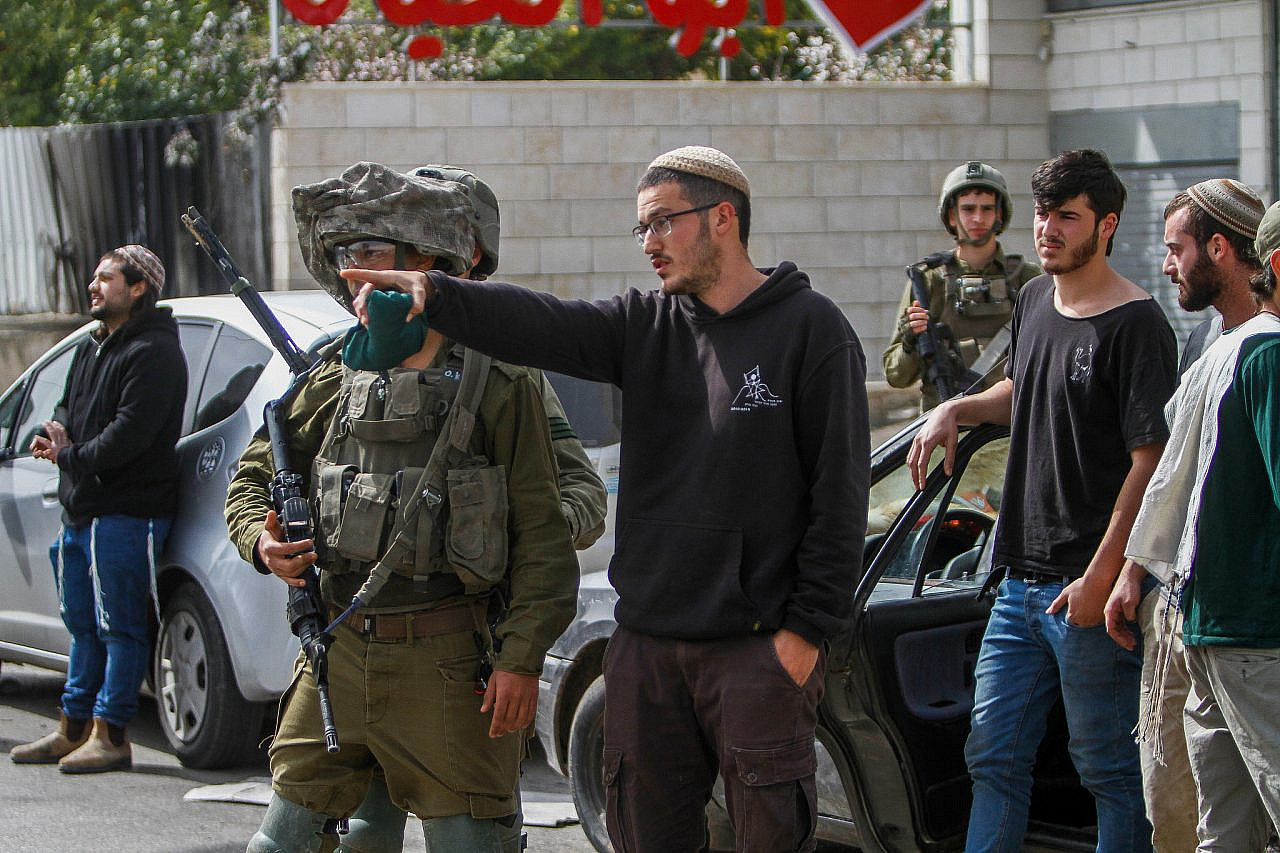
The particular flavor of this “democratic” reign is embodied in the word “meshilut,” a slippery term whose meaning has taken a telling and disturbing turn. “Meshilut” literally translates to “governance,” and in the context of the judicial overhaul, restoring meshilut means putting the Court back in its proper place in Israel’s balance of powers.
But the term has also come to carry a much darker connotation. Since the events of May 2021, when Palestinian citizens of Israel rose up alongside Palestinians in the West Bank and Gaza against the Israeli regime, the far right has been using meshilut as a euphemism for cracking down harder on Palestinians in the name of “sovereignty” — that is, Jewish sovereignty. National Security Minister Itamar Ben Gvir, who ran on the same ticket as Rothman’s Religious Zionist party, put it cogently in his own election campaign slogan: “Who are the landlords here?”
Declaring Palestinians terrorists and dealing with them in whichever way the government sees fit is a legal manifestation of meshilut. So is the silencing of critics of the regime — or, apparently, those asking questions of it, for they, too, threaten Israel’s “collective.”
It’s no coincidence that both “meshilut” and “democracy” are in the name of the organization Rothman helped found a decade ago. For in bringing these two concepts together, Rothman’s real vision for the judicial system is at its clearest. He has been telling us his plan for years. Now that he is in power, we would do well to listen.

